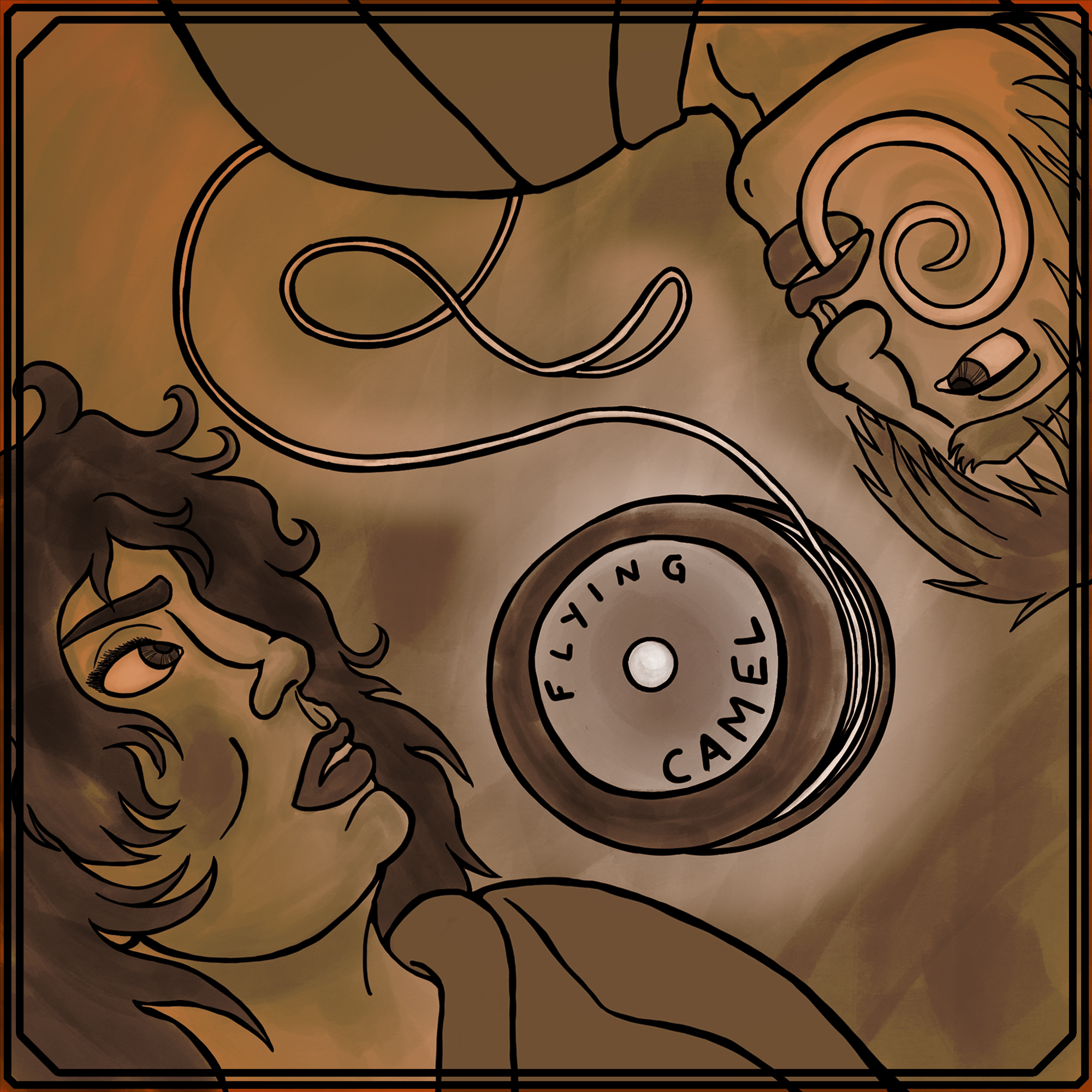By Faith Gregory and T.X. Watson
Mike Augspurger is the founder of One-Off Handcycles, a business that makes Handcycles for disabled people to ride on rough terrain.
“Up until recently I built and sold custom titanium bikes frames, and then after that I built and sold my own design for an off-road Handcycle, which is for people in wheelchairs,” said Augspurger.
Augspurger’s Handcycles usually weigh around 50 lbs, weight varying on wheels, seating and various components, and tend to be about 70 inches long. The frame is made of chrome moly steel.
“It’s a generally three-wheeled vehicle that’s arm powered, we like to think of it as the equivalent of a mountain bike for people who are in wheelchairs,” said Augspurger.
The handcycles are designed for rough terrain, but they also work on roads and bike paths.
The invention's story
“I was always into off-road motorcycles, and then off-road bicycles," said Augspurger. "Also when they first invented mountain bikes I was really into that. And I was an owner of a titanium bike frame company in the Boston area called Merlin Metalworks, which was one of the first brands of titanium bike frames.”
Augspurger became fast friends with his neighbor Bob Hall, who was the first person to enter the Boston Marathon in a wheelchair, often thought of as the grandfather of wheelchair racing.
“I learned from Bob about all these various kinds of wheelchair sports, and I always thought if I were in a wheelchair, what I would want is an off-road Handcycle. And I knew that they didn’t exist, so it was kind of compelling to make my own design,” said Augspurger.
The Handcycle Augspurger designed has two wheels in the front and one in the back, using rear-wheel drive, as opposed to having one wheel in the front and two in the back, using front wheel drive. This is to maximize control at high speeds and sharp turns for the rider.
Augspurger had local wheelchair athletes test them out to make sure the models actually work for people with disabilities. He said disabled people think of things to test on the Handcycle that able bodied people wouldn’t even think to try.
The hardest part of designing the Handcycle was how the rider would steer and crank with their hands at the same time.
Augspurger designed a chest support for the Handcycle, because a lot of paralyzed people aren’t just paralyzed from the waist down, but from the stomach or mid chest down, so they couldn’t be sitting up while riding.
Augspurger had one of the wheelchair athletes come over to test out the chest support while riding the Handcycle. He had attached the support with hose clamps.
“(To steer the Handcycle) you had to keep cranking, reach up with one hand and adjust the steering. I knew it was a big problem, and I didn’t have the answer, but when he’s riding around, the hose clamps weren’t tight enough, and the chest support thing swung over to the side. and I thought ‘oh, I wonder if I could use that to steer with.’ When it moved to the side I thought I could have cables on there, and that’s how it works, is you steer it with your chest with this pivoting chest pad. That’s actually probably the biggest innovation, to steer with your chest because your hands are busy.”
Augspurger's design is the only kind of Handcycle that’s not a recumbent, a wheeled vehicle where the rider lays on their back and pedals.
In 2006, Augspurger sponsored the first ever off-road Handcycle race in Colorado. Eleven athletes competed, all on his Handcycles.
There were 10 years in between when Mike made his first design sketches for his Handcycle -- which has been structurally almost the same since the beginning -- and when he actually had the resources to start working on it.
"I subscribed the the wheelchair magazine and every month I would sort of panic, get it out of the mailbox and look through, because I expected somebody else was going to beat me to it. And then, twenty years later, I think, 'God, I wish somebody else would make these.' For ten years I'd think, 'how many of these do I have to make?' I'd rather make them better, or make a slightly different version, instead of just taking orders and making the same thing again."
The problem with athletic equipment for people with disabilities
Ausburger is no longer in business, but a few other business sell models based on his designs. He said all of those organizations has offered to pay him licensing fees, but currently he isn't asking any of them to pay for their permission to use the patent. When he gets requests now, he sends people to Jake O'Connor, and his company Reactive Adaptations.
He said it's common for athletic equipment for people with disabilities to just disappear as soon as the first company to make them stops producing them.
"There was a water ski for a while that you kneel on, it built up into a whole sport ... but the people who were making the water ski stopped and nobody else would do it so the sport just died."


